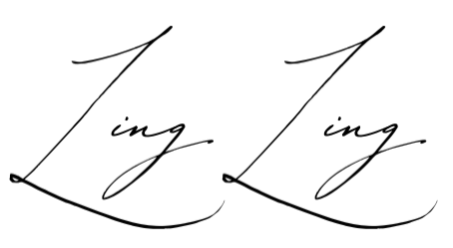How Does Cultural Curiosity Make An Effective Global Leader?
A curious global leader excels at crossing cultural lines, building bridges, and communicating effectively across diverse environments. This curiosity drives adaptability, allowing leaders to thrive and unite teams with a shared vision across cultures.

Curiosity is a superpower for the world's geniuses, innovators and leaders. Curious people have a strong desire to seek out new information and experiences.
Curiosity is about discovery. It’s about making the unknown known. It’s about asking why and why not. It’s about stepping away from comfort into the uncomfortable. It’s wondering, what’s on the other side? What’s the view? It’s about searching for paths when there is none. It’s about standing at different vantage points, taking in multiple views. A curious leader will not accept things as the status quo. They will continuously find diverse ideas, perspectives, and ways to develop their team and bring them forward.
When it comes to culture, a curious global leader is better at navigating cultural lines, building bridges, communicating their vision across cultures, and adapting and thriving in diverse environments. These qualities make a global leader effective in connecting, collaborating, and developing high-performing multicultural teams.
What is Cultural Curiosity?
Curiosity comes from within. It is the inner motivation and drive to explore, investigate, understand, and learn. The goal is to acquire knowledge, skills, and experiences. Humanity’s curiosity is seen as the driving force for developments in science, advancements in technology, exponential improvements in the quality of life, exploration of space, and much more.
We might continue to believe that the world is flat or that the sun revolves around us without curiosity. Without curiosity, we would not have travelled to the moon or discovered electricity. Neither would we have left our homelands to travel the world or tinkered with chemicals, which improved healthcare globally.
Cultural curiosity refers specifically to the wonder, discovery, and understanding of people from different cultural backgrounds in how they feel, think, communicate, behave, and interact. It involves a deep motivation to learn and empathise with different ways of working and living, including the culture’s values, beliefs, norms, and customs.
Based on a survey by over 4,000 executives and managers in companies worldwide by MIT Sloan, curiosity, along with trust and integrity, is considered an enduring leadership behaviour. For a global leader, Cultural Curiosity helps heighten their sense of awareness, sensitivity, knowledge and empathy of another culture. These are all essential traits in establishing trusting relationships.
Why is cultural curiosity essential for a global leader?
Cultural curiosity is fundamental in ensuring that a global leader performs and thrives in culturally diverse environments and groups of people. There are many ways in which cultural curiosity supports a global leader. Among the many benefits, cultural curiosity cultivates collaboration, drives innovation, and maintains and improves one’s well-being.
Positive social outcomes
When we approach others with curiosity, we present ourselves as open, non-judgemental, humble and earnest. As such, others will view you as more competent and with higher trust. Others will be more willing to connect, share and build relationships. Over time, if such connections are maintained, you can share and learn from each other’s culture. This can only lead to meaningful and strengthened cross-cultural relationships that enrich your life and work.
Driver of Innovations
When Cultural Curiosity is triggered, people see problems and barriers as a new area to explore, investigate and learn. Leaders with Cultural Curiosity are eager to find creative solutions and become excited when a discovery opens up many possibilities. For a global leader, such curiosity will help to probe, gather and synergise the culturally diverse perspectives of their team and achieve more inclusive and innovative results. In a volatile and uncertain world, curiosity propels us to think deeply, rationally and meaningfully about our decisions so that creative solutions can come to life.
Subjective well-being
We may feel anxious, lost, and distressed when we don’t know the local language or navigate the cultural landmines. Such situations put a toll on your mental and emotional well-being. Although research has shown that if a global leader is culturally curious, these very anxious-inducing experiences are reframed as an experience that gives them excitement, enthusiasm and energy. They will be better able to navigate uncertain and ambiguous circumstances while consciously maintaining their well-being. Having Cultural Curiosity can help sustain the well-being of the global leader in the long run.
How can I become more culturally curious?
You can consider several areas in developing cultural curiosity. First, you can build your cultural curiosity by understanding your motivation, acquiring cultural knowledge, observing social interactions, and enquiring about individual responses.
Acquiring Cultural Knowledge can be done through research. Typically, Cultural Knowledge involves learning about a cultural group's history, geography, demographics, politics, and philosophies. It can also encompass long-held traditions, values, beliefs, norms, and communication styles. Most training programs and textbooks focus on the dos and don’ts when interacting with a member of a different culture. Cultural knowledge obtained by curiosity can be used as the foundation for deepening one’s understanding of another culture. However, knowledge alone is not enough. Knowledge needs to be verified with personal observation and enquiry.
Next, we can develop cultural curiosity further by observing social interactions. With an open mind and putting aside assumptions, we take the time to watch how individuals within a cultural group interact with each other. As you observe, you might consider these aspects of social interaction and make personal notes.
Interaction between older people and the young
How do they speak to each other? Is there deference? Is there equality? Observing this social interaction will reveal the culture’s value in relating to its members of varying ages. For example, cultures with deep roots in Confucianism value respect and deference to older people, while cultures in Greek philosophy value equality, no matter the age.
Interaction between an employee and its leaders
How do members of a group view their leaders? Are their leaders viewed as equals? Or is there a social distance between them?
Such observations will hint at the cultural group's power distance structure. Whether it is high or low power distance, this cultural value shapes how decisions are made, and tasks are delegated and executed.
Interaction between people of similar age and status
Are they expressive in their conversations? Or are they reserved? Do they give hugs or peck on the cheeks? Or do they not touch at all?
Such interactions will help guide your mannerisms and behaviour in informal settings with friends or colleagues outside the workplace. These observations will indicate whether the cultural group is expressive. Expressive cultures are generous in their hand gestures or facial expressions. Yet, cultures that are more reserved in their communication have steady vocal tones and are more muted in their non-verbal language.
Interaction within and outside the office environment
Are the people relaxed in the office? Or dressed and behaved formally? Are they on time for business meetings and not for meeting friends and family? Do they bring their work home? Or their life to work?
This observation can give you a sense of whether the cultural group values work productivity over work-life balance. Cultural groups that value productivity tend to always bring their work home or work. In comparison, cultural groups that value work-life balance will have clear boundaries when they dedicate their time to work and personal life.
Engage a Cultural Broker
Lastly, with the knowledge and notes from observations, it is best to enquire about individual responses. Seek out and engage a cultural broker who understands your culture and the one you observe. Discuss your observations with them and seek feedback on the interpretations of that behaviour.
For example, you have noticed that a local leader prefers to instruct their direct reports rather than discuss the next steps. In your cultural view, it might be considered ego-centric and inconsiderate of the employee's opinions.
However, after consulting with your cultural interpreter, you discovered that if the leaders do not instruct, the direct reports will view the leader as incompetent and undeserving of the position.
Ready to be Culturally Curious?
This post is updated from the originally published post on Culture Spark Global on 18 November 2021 and written by the same author, Ling Ling Tai.





